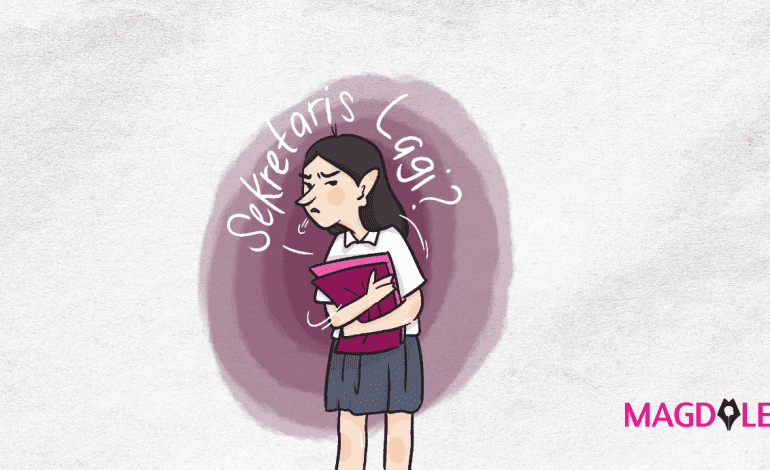
Finland was recently named the happiest country in the world for the sixth year running. A range of theories have been put forward to explain why the Nordic nation continues to rank at the top of the table for happiness, from greater income equality to time spent in nature.
But one Finnish sociology professor credited the country’s position to “a cultural orientation that sets realistic limits to one’s expectations for a good life”. That is, he seems to believe Finnish people are happy because they don’t set their expectations too high.
So should we all lower our expectations to be happier? I would argue psychology research suggests the opposite.
High expectations are important because they allow us to dream and create goals to work towards. Through a process called mental contrasting, we create judgements about our expectations of the future and decide which dreams are realistic to pursue and which ones we should let go.
For example, you may imagine yourself living a life with many friends around you. If you’re sitting alone at home dreaming about this and feeling sad about the reality of being lonely, mental contrasting helps you identify your dream, anticipate potential obstacles, plan to take action to overcome them and pursue a goal that will help you make friends, such as joining a club. So high expectations, when realistic, can serve as a motivating force to make a change.
High expectations also keep us optimistic, so that we keep going in the face of adversity. When a bad thing happens to someone and they develop an expectation that everything will work out well – despite the adversity and even if it seems unrealistic at the time – this can lead them to take positive steps forward.
For example, your expectation of finding a lifelong partner may diminish when your relationship breaks up. However, if you continue to have high expectations that you’ll meet the right person, you’re more likely to join a dating site and seek opportunities to meet new people.
Also read: The Psychology of Why Sad Songs Make Us Feel Good
On the Other Hand …
Low expectations limit our capacity to develop and grow. Having low expectations that we’ll accomplish what we hope to is not a good way to adapt to changes in life, and can lead to feelings of helplessness and despair.
When we have low expectations of success following adversity, we’re more likely to give up, for example not bother trying a dating app. Even when our chances of success are objectively high, we will forego opportunities – perhaps to meet new people – due to our low expectations that things will work out well for us.
So, having high expectations can help us adapt to changing circumstances and keep going. It’s a sign of resilience, adaptability and wellbeing.
Expectations of Others
While it’s useful to set high expectations for ourselves, we also tend to perform better when other people have high expectations of us. This is called the Pygmalion effect.
Our belief that others see us as capable and believe that we can accomplish more than we think we can pushes us to perform better. Likewise, when others have low expectations of us, we generally perform worse.
The Pygmalion effect has been tested extensively in the workplace and education, showing similar results.

Also read: Grief and Guilt: How I Cope with My Parent’s Death
When Can High Expectations be Bad?
Setting expectations too high can have negative effects. Imagine you overestimated your skills and challenged yourself too much. Perhaps you started to play Candy Crush on your partner’s phone and their level is way ahead of yours. The mismatch of your skills and this challenge may lead to frustration and even anxiety.
To neutralise this, all you need to do is go back to a level better matched to your skill level – which you find challenging but at which you’re capable of achieving high scores to progress in the game. We tend to do the same in real life to keep the equilibrium.
For example, say you’re organising a dinner party for your friends. If you commit to cooking a sophisticated meal that’s too challenging, your anxiety may reach such high levels that you can’t enjoy your own dinner party. Instead, you could lower your expectations and prepare a meal that doesn’t require as much skill, but still challenges you (and that your friends will no doubt still enjoy).
Also read: Expectation of Beauty, Not Vanity, is What’s Toxic
Managing Expectations
We all have longings, a desire for an ideal version of our lives. Some of our longings become goals (for example, becoming a parent), and others become a lifelong desire that will likely never come true (for example, winning the X Factor).
One of the reasons people may not want to have high expectations is because they want to protect themselves from disappointment when their hopes are not realised, which is a valid concern. However, learning to manage our emotions when sadness and frustration kick in helps us cope more effectively with adversity.
The pros of high expectations in motivating us to set and achieve goals outweigh the cons, and any “protection” we might get from low expectations. Considering all this, I think it’s too simplistic to believe Finns are happier for this reason.
Jolanta Burke, Senior Lecturer, Centre for Positive Health Sciences, RCSI University of Medicine and Health Sciences
This article was first published on The Conversation, a global media resource that provides cutting edge ideas and people who know what they are talking about.






















